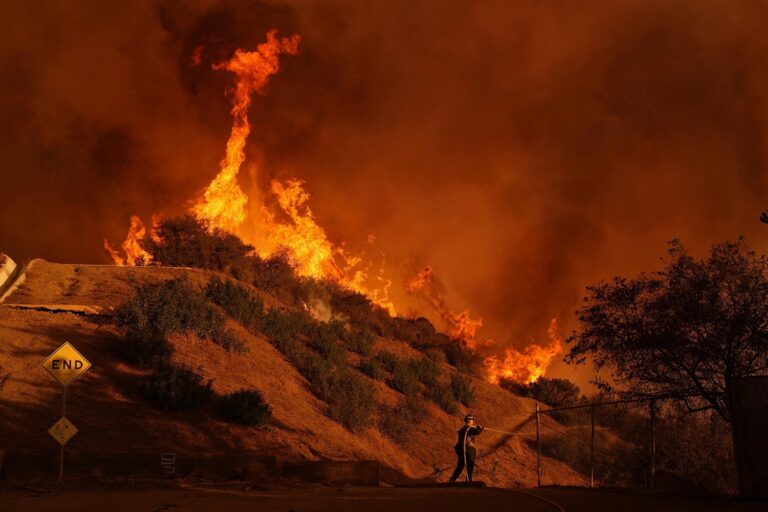Spain is facing increasing urgency to bolster its preparedness for climate-related disasters following a series of deadly wildfires that have devastated large swaths of the country. Prime Minister Pedro Sánchez has underscored the need for enhanced measures to address the escalating risks posed by climate change, as authorities grapple with the aftermath of this season’s intense blazes. The recent fires, fueled by prolonged heatwaves and drought conditions, have not only caused tragic loss of life and property but also highlighted vulnerabilities in Spain’s current crisis management strategies.
Spain faces escalating wildfire threats amid rising temperatures and drought conditions
Recent months have seen Spain grappling with an unprecedented surge in wildfire activity, as soaring temperatures and prolonged drought create a tinderbox across vast swathes of the country. Authorities report that these environmental factors have not only increased the frequency of fires but also intensified their severity, leading to devastating losses for communities and ecosystems alike. Experts warn that without enhanced preparedness and adaptive strategies, Spain could face even more catastrophic fire seasons in the near future.
Key challenges driving the wildfire crisis include:
- Record-breaking heatwaves pushing daily temperatures beyond historical averages
- Extended dry spells reducing soil moisture and vegetation resilience
- Insufficient forest management and lack of early detection systems
- Urban expansion into wildfire-prone rural areas increasing vulnerability
| Year | Wildfire Incidents | Affected Area (hectares) |
|---|---|---|
| 2021 | 4,500 | 80,000 |
| 2022 | 5,200 | 110,000 |
| 2023 | 6,800 | 150,000 |
Government outlines urgent need for advanced firefighting technology and expanded prevention programs
In light of recent catastrophic wildfires, the Spanish government has emphasized the critical importance of integrating cutting-edge firefighting technologies along with the expansion of wildfire prevention initiatives. Current efforts are being intensified to deploy advanced aerial surveillance drones, AI-powered fire detection systems, and improved communication networks to ensure rapid response times across vulnerable regions. These technologies aim to revolutionize traditional firefighting tactics, minimizing response lags and maximizing situational awareness during emergencies.
Prevention programs are also set for significant enhancement, focusing on educating local communities, promoting sustainable land management practices, and increasing resources for forest maintenance. Officials are prioritizing collaboration with environmental scientists and autonomous monitoring stations to proactively identify fire risks and implement early intervention strategies. The government’s multi-pronged approach seeks not only to mitigate the immediate impacts of wildfires but also to build resilient ecosystems capable of withstanding future climate stresses.
| Technology/Program | Main Benefit | Implementation Timeline |
|---|---|---|
| AI Fire Detection | Rapid identification and alerts | 2024 Q3 |
| Aerial Surveillance Drones | Real-time area monitoring | 2024 Q4 |
| Community Education Workshops | Improved local preparedness | 2024 Q2 |
| Forest Maintenance Programs | Reduced fuel for fires | Ongoing |
Experts call for nationwide climate adaptation strategies to protect vulnerable communities
Climate experts are urging urgent implementation of comprehensive adaptation plans that prioritize the protection of communities most at risk from environmental disasters. The recent surge in wildfires across Spain has starkly illuminated the country’s vulnerability to climate-induced emergencies, demanding a coordinated national response. Specialists emphasize the need to integrate scientific data with localized knowledge, ensuring that mitigation efforts address both immediate dangers and long-term resilience.
The proposed strategies focus on:
- Strengthening early warning systems through improved technology and increased funding
- Investing in sustainable land management to reduce wildfire fuel sources
- Enhancing community outreach and education to prepare residents for rapid evacuation and safety protocols
| Adaptation Measure | Key Benefit | Priority Areas |
|---|---|---|
| Reforestation with fire-resistant species | Natural buffer zones | Southern Spain |
| Infrastructure retrofitting | Resilient housing | Rural communities |
| Water resource management | Fire suppression support | Forested regions |
In Summary
As Spain grapples with the devastating impact of its worst wildfires in recent memory, the urgent call from Prime Minister Sánchez underscores a broader reckoning with climate resilience. Experts warn that without significant investment in prevention, infrastructure, and emergency response, the country-and others similarly vulnerable-will face increasingly fierce and frequent climate-related disasters. The coming months will be critical as policymakers and communities seek to turn the devastation into a catalyst for meaningful action against the mounting climate crisis.




